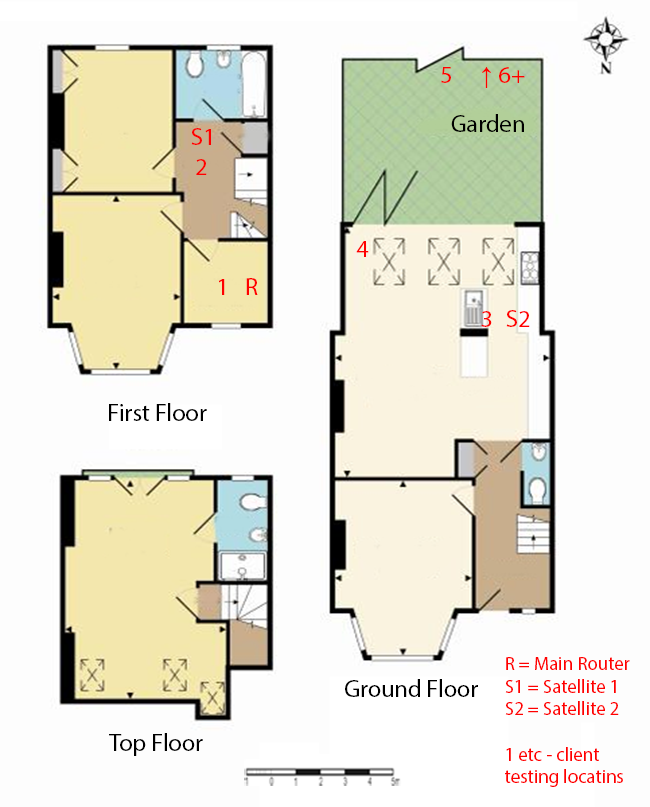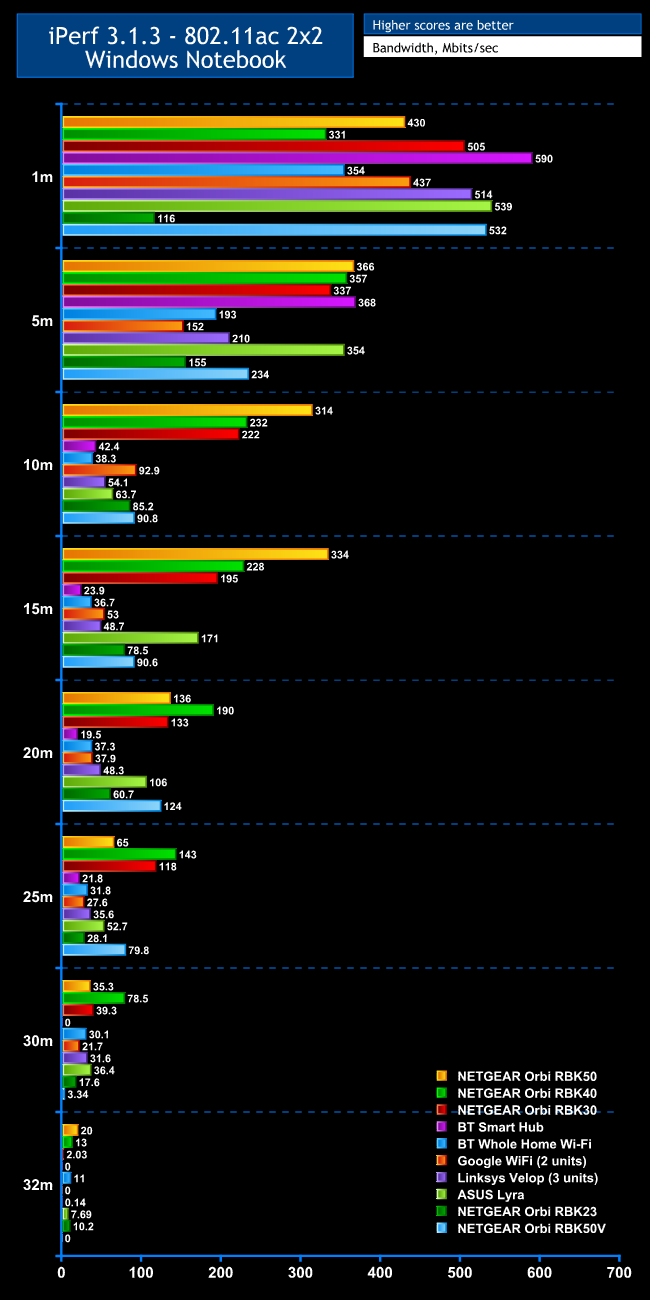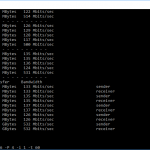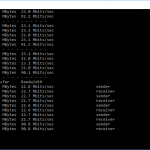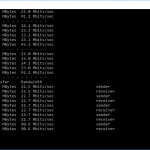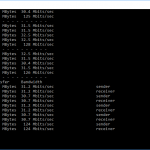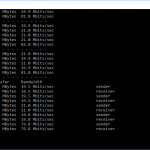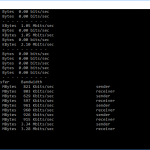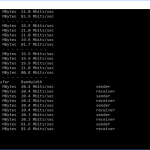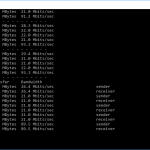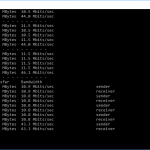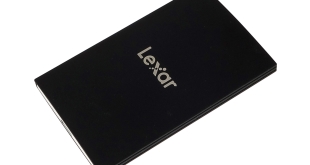We replicated the testing from our Ultimate Mesh WiFi Router Shootout as closely as possible with the NETGEAR Orbi Voice. However, we no longer had the Apple Macbook Pro in our possession, so had to leave this set of tests out.
We repeated the positions from the Ultimate Mesh WiFi Router Shootout, with eight different locations for our test notebooks. The clients used were an HP Spectre 13 X2 notebook with 2×2 802.11ac WiFi, and an older HP Folio 13, which maxes out at 3×3 802.11n WiFi.
In each case, we used the freely available iPerf 3.1.3 software, which stresses a network by sending packets of random data and measures the throughput. One system acts as a server, and the other as a client, as data is sent between them. In all cases, we used an Armari Windows 10 workstation connected to the primary Lyra unit via Gigabit Ethernet as the server, so that the WiFi was always the slowest connection.
These are the iPerf commands we used:
For the server: iperf3 –s –i 1
For the client: iperf3 –c <IP Address> –P 4 –i 1 –t 60
Note that the client command sends four streams of data simultaneously, simulating a multi-client connection as closely as possible with just one client. It takes 60 throughput readings at one second intervals and then averages the result.
The above diagram shows the layout of the house we used for testing. Note that we didn't test on the top floor of the house because this was directly above the first floor and wouldn't have provided much of a range test. Instead, we used two locations on the same floor as the router (the first floor), then more distant locations on the ground floor extending out the back of the house into the garden.
Each test location, numbered in the diagram above, was approximately 5m away from the last one.
With the mesh networking and standalone router products used for comparison, location 1 was very near to the router, around 1m away. The next location – 2 – was around 5m away, with a wall in the way, but on the same floor. Location 3 was on the floor below, so had walls and a floor in between, but was a further 5m away. Location 4 was the last one actually inside the house. Locations 5 to 7 were then 5m further down the garden. Location 8 was only 2m further down, as this was the end of the garden, but also behind a shed, so posed a significant challenge that only a few mesh WiFi systems can cope with.
We should also say a few words about the location of the satellites. The routers or primary unit were always placed in the same location, in the first floor study next to the broadband. In the case of three-unit mesh systems such as BT Whole Home Wi-Fi and the top Velop option, the second and third satellites were placed at S1 and S2.
With the two-unit Google WiFi, the second unit was placed at S1, due to the recommendation of the setup software. However, in the case of the Orbi RBK50, it was possible to place the second unit at S2, due to the signal strength from these systems.
For the Orbi Voice system, we placed the primary unit in location R, with the Alexa satellite speaker at S2.
802.11ac 5GHz
Within 1m, the NETGEAR Orbi Voice is up with the best, achieving 532Mbits/sec, just behind the ASUS Lyra, although the standalone BT Smart Hub still reigns supreme at close proximity.
At 5m, the Orbi Voice isn't quite so stellar, dropping down to 234Mbits/sec, although this is still a decent throughput. Move to 10m, and the Orbi Voice drops down to 90.8Mbits/sec, which is considerably behind NETGEAR's mesh-only options, the RBK50, RBK40 and RBK30, but competing well with all other mesh WiFi options.
The story is similar at 15m, although the Orbi Voice has hardly dropped at all compared to 10m, managing 90.6Mbit/ssec, but this is still considerably behind the NETGEAR standalone options.
The 20m result, however, is actually better. The speed of 124Mbits/sec is back up amongst the NETGEAR standalones, and ahead of the other brands. Move out to 25m, and the Orbi Voice still manages a very credible 79.8Mbits/sec, which places above the RBK50. But at 30m performance drops like a stone to 3.34Mbits/sec – hardly usable – and at the 32m “behind the shed” distance, the Orbi Voice failed completely.
Overall, the Orbi Voice is great when close to the router, and its mesh abilities are credible up to and including 25m, although its midrange performance isn't as capable as the standalone Orbi products. Nevertheless, you are getting very respectable 802.11ac mesh WiFi along with your Alexa speaker.
802.11n 2.4GHz
The picture with 2.4GHz 802.11n is even more impressive than with 5GHz 802.11ac. The Orbi Voice manages an excellent 81.6Mbits/sec at 1m, and at 5m the throughput goes up to an even better 89.5Mbits/sec.
This drops down to a decent 64.5Mbits/sec at 10m, then back up to a very credible 90.4Mbits/sec at 15m, although all of NETGEAR's mesh systems excel at this range, presumably because the faster 802.11ac backhaul is covering most of the distance, with just a short 802.11n hop to the satellite.
At 25m, the Orbi Voice is the fastest mesh WiFi system we've tested over 802.11n, managing 85.1Mbits/sec, quicker than it is with 802.11ac at this range. This drops to a still very capable 43.3Mbits/sec at 30m, but it couldn't get a signal to 32m. The shed in the way appeared to block the WiFi completely.
Overall, the Orbi Voice is particularly good with legacy 802.11n devices, up with the best mesh systems available.
Be sure to check out our sponsors store EKWB here
 KitGuru KitGuru.net – Tech News | Hardware News | Hardware Reviews | IOS | Mobile | Gaming | Graphics Cards
KitGuru KitGuru.net – Tech News | Hardware News | Hardware Reviews | IOS | Mobile | Gaming | Graphics Cards


